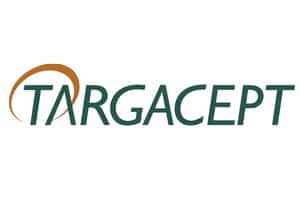 There was further disappointment for research into Alzheimer’s disease this week with Targacept’s decision to drop a drug candidate after disappointing trial results.
There was further disappointment for research into Alzheimer’s disease this week with Targacept’s decision to drop a drug candidate after disappointing trial results.
The US biopharmaceutical company’s TC-1734 was being tested as a treatment for mild to moderate Alzheimer’s, but failed to show superiority to current standard therapy donepezil during a phase IIb trial.
As a result Dr Stephen Hill confirmed that Targacept “do[es] not intend to invest in further development of TC-1734”.
He added: “We are disappointed for Alzheimer’s disease patients and their families.”
The discouraging results are the latest in a string of significant drug trial failures in Alzheimer’s as companies attempt to address one of the world’s biggest healthcare challenges.
Investigational drugs to fail at the phase III stage include bapineuzumab from Pfizer, Johnson & Johnson and Elan, and solanezumab from Lilly, both in 2012. These two treatments targeted the build up of amyloid plaques in the brain which have been associated with the onset of Alzheimer’s, although they both failed to improve symptoms of the disease.
Targacept’s TC-1734 was developed to target the alpha4beta2 NNR subtype, a receptor on the brain associated with growth hormone secretion.
The drug was being tested in a phase IIb trial involving 293 patients randomised to take either TC-1734 or donepezil, the most commonly prescribed treatment for Alzheimer’s.
However, after a 52-week period, Targacept’s drug was unable to best donepezil in terms of improving cognitive function and global function.
Despite this spate of trial failures, there is still hope for Alzheimer’s research and both the public and private sectors have invested heavily in the area in recent years, fearful of the extreme healthcare burden if no effective treatment is found.
Ongoing projects include EU’s Innovative Medicines Initiative attempt to revamp the R&D process for dementia, while in the US the National Institutes of Health (NIH) has created a public-private partnership with pharma companies and non-profit organisations to speed up research into new drug targets for Alzheimr’s among other key diseases.
This June the UK’s Medical Research Council (MRC) launched a £16m dementia research programme and Austrian biopharma company AFFiRiS claimed its drug candidate AD04 was the first therapy to show a disease-modifying effect in patients with the disease.




